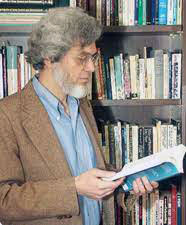Two Ways That the Ukraine War Could Have Been Prevented and Might Still Be Ended
By Lawrence S. Wittner
Perhaps the greatest tragedy of the immensely destructive Ukraine War lies in the fact that it could have been averted.
The most obvious way was for the Russian government to abandon its plan for the military conquest of Ukraine.
The problem on this score, though, was that Vladimir Putin was determined to revive Russia’s “great power” status. Although his predecessors had signed the UN Charter (which prohibits the “use of force against the territorial integrity or political independence of any state”), as well as the Budapest Memorandum and the Treaty on Friendship, Cooperation, and Partnership (both of which specifically committed the Russian government to respecting Ukraine’s sovereignty and territorial integrity), Putin was an ambitious ruler, determined to restore what he considered Russia’s imperial grandeur.

This approach led not only to Russian military intervention in Middle Eastern and African nations, but to retaking control of nations previously dominated by Russia. These nations included Ukraine, which Putin regarded, contrary to history and international agreements, as “Russian land."
As a result, what began in 2014 as the Russian military seizure of Crimea and the arming of a separatist rebellion in eastern Ukraine gradually evolved into the full-scale invasion of February 2022―the largest, most devastating military operation in Europe since World War II.
The official justifications for these acts of aggression, trumpeted by the Kremlin and its apologists, were quite flimsy. Prominent among them was the claim that Ukraine’s accession to NATO posed an existential danger to Russia. In fact, though, in 2014―or even in 2022―Ukraine was unlikely to join NATO because key NATO members opposed its admission. Also, NATO, founded in 1949, had never started a war with Russia and had never shown any intention of doing so.
The reality was that, like the U.S. invasion of Iraq nearly two decades before, the Russian invasion of Ukraine was out of line with both international law and the imperatives of national security. It was a war of choice organized by a power-hungry ruler.
On a deeper level, the war was avoidable because the United Nations, established to guarantee peace and international security, did not take the action necessary to stop the war from occurring or to end it.
Admittedly, the United Nations did repeatedly condemn the Russian invasion, occupation, and annexation of Ukraine. On March 27, 2014, the UN General Assembly passed a resolution by a vote of 100 nations to 11 (with 58 abstentions), denouncing the Russian military seizure and annexation of Crimea. On March 2, 2022, by a vote of 141 nations to 5 (with 35 abstentions), it called for the immediate and complete withdrawal of Russian military forces from Ukraine.
In a ruling on the legality of the Russian invasion, the International Court of Justice, by a vote of 13 to 2, proclaimed that Russia should immediately suspend its invasion of Ukraine. That fall, when Russia began annexing the Ukrainian regions of Donetsk, Luhansk, Kherson, and Zaporizhzhia, the UN Secretary-General denounced that action as flouting “the purposes and principles of the United Nations,” while the UN General Assembly, by a vote of 143 nations to 5 (with 35 abstentions), called on all countries to refuse to recognize Russia’s “illegal annexation” of Ukrainian land.
Tragically, this principled defense of international law was not accompanied by measures to enforce it. At meetings of the UN Security Council, the UN entity tasked with maintaining peace, the Russian government simply vetoed UN action. Nor did the UN General Assembly circumvent the Security Council’s paralysis by acting on its own. Instead, the United Nations showed itself well-meaning but ineffectual.
This weakness on matters of international security was not accidental. Nations―and particularly powerful nations―had long preferred to keep international organizations weak, for the creation of stronger international institutions would curb their own influence. Naturally, then, they saw to it that the UN’s predecessor, the League of Nations, could act on international security issues only by a unanimous vote of its membership.
And even this constricted authority proved too much for the U.S. government, which refused to join the League. Similarly, when the United Nations was formed, the five permanent seats on the UN Security Council were given to five great powers, each of which could, and often did, veto its resolutions.
During the Ukraine War, Ukrainian President Volodymir Zelensky publicly lamented this inability of the United Nations to enforce its mandate. “The wars of the past have prompted our predecessors to create institutions that should protect us from war,” he remarked in March 2022, “but they unfortunately don’t work.” In this context, he called for the creation of “a union of responsible countries . . . to stop conflicts” and to “keep the peace.”
The need to strengthen the United Nations and, thereby, enable it to keep the peace, has been widely recognized. To secure this goal, proposals have been made over the years to emphasize UN preventive diplomacy and to reform the UN Security Council. More recently, UN reformers have championed deploying UN staff (including senior mediators) rapidly to conflict zones, expanding the Security Council, and drawing upon the General Assembly for action when the Security Council fails to act. These and other reform measures could be addressed by the world organization’s Summit for the Future, planned for 2024.
In the meantime, it remains possible that the Ukraine War might come to an end through related action. One possibility is that the Russian government will conclude that its military conquest of Ukraine has become too costly in terms of lives, resources, and internal stability to continue. Another is that the countries of the world, fed up with disastrous wars, will finally empower the United Nations to safeguard international peace and security. Either or both would be welcomed by people in Ukraine and around the globe.
Dr. Lawrence Wittner is Professor of History emeritus at SUNY/Albany and the author of Confronting the Bomb (Stanford University Press).
